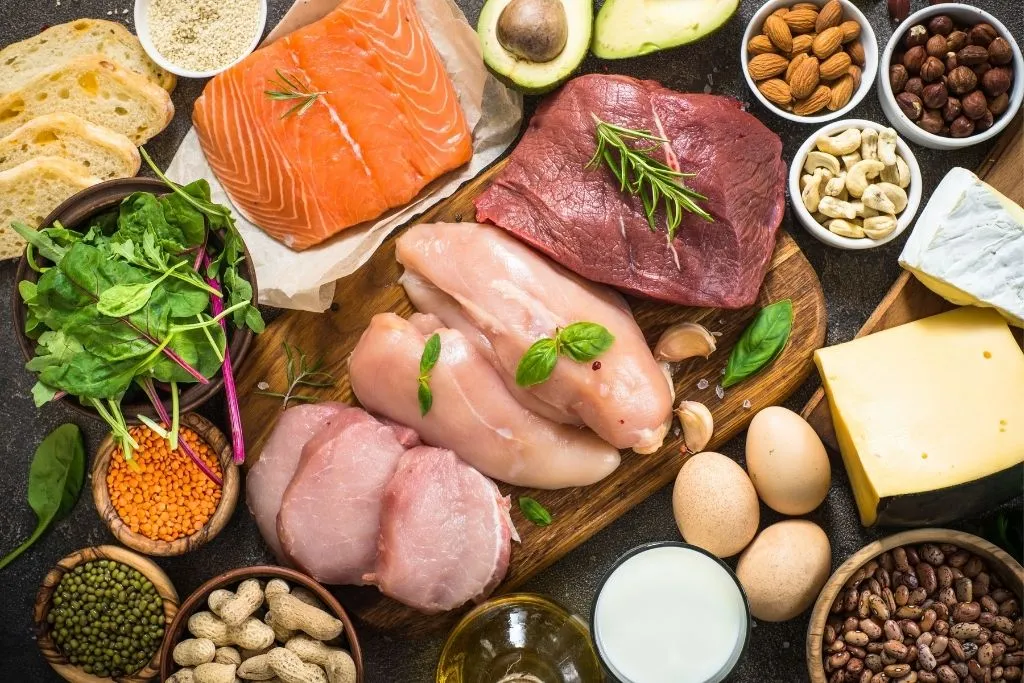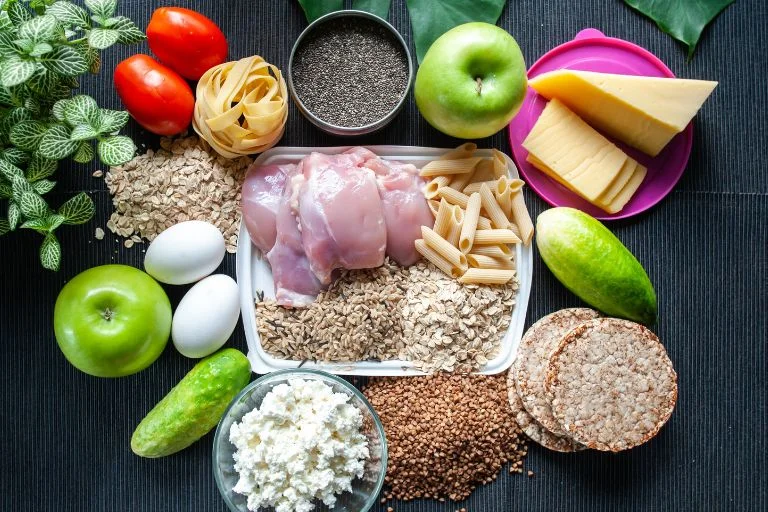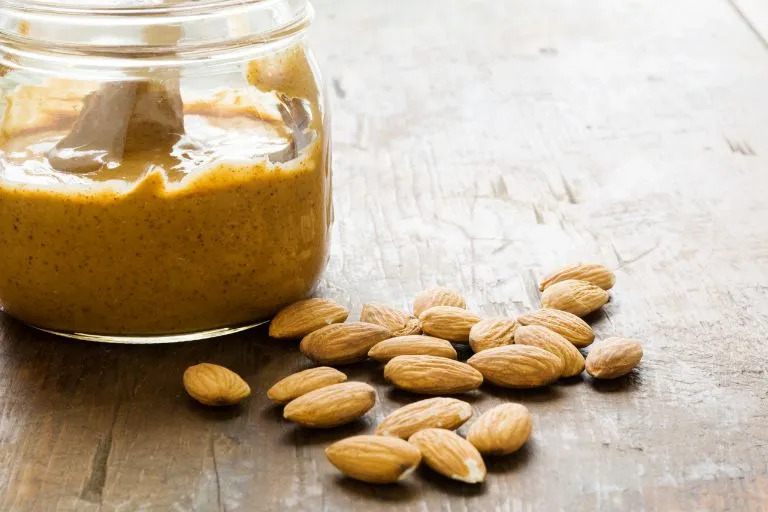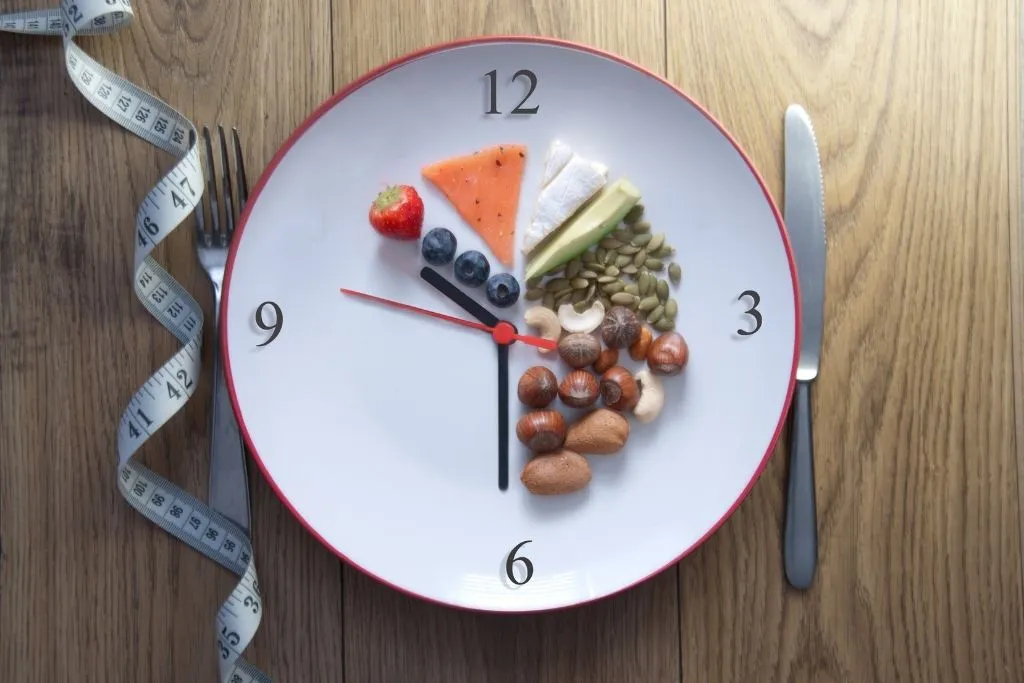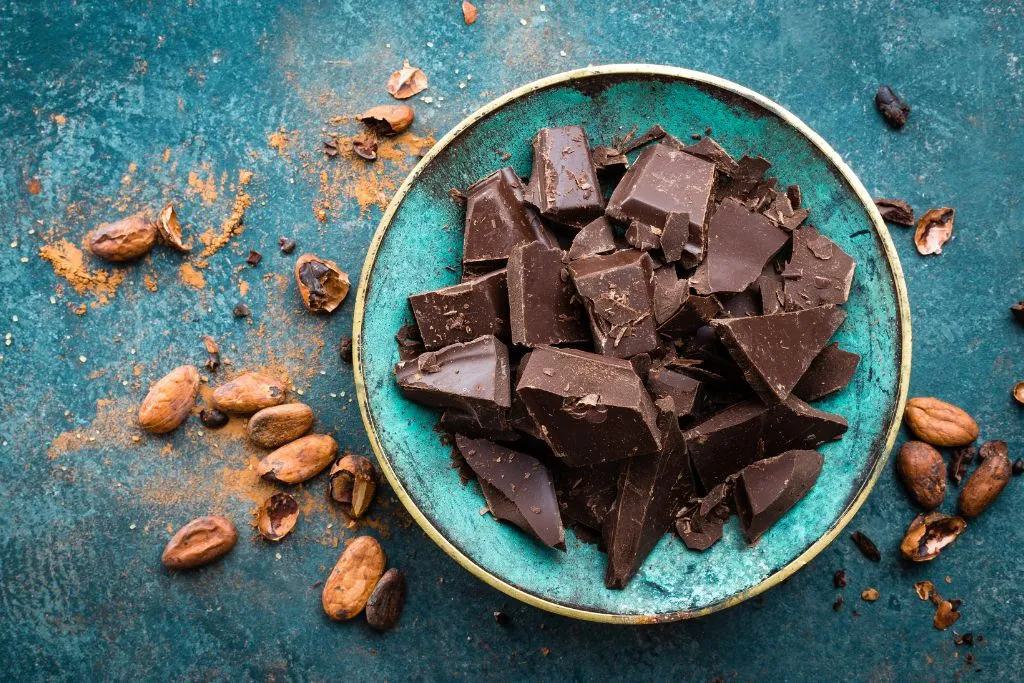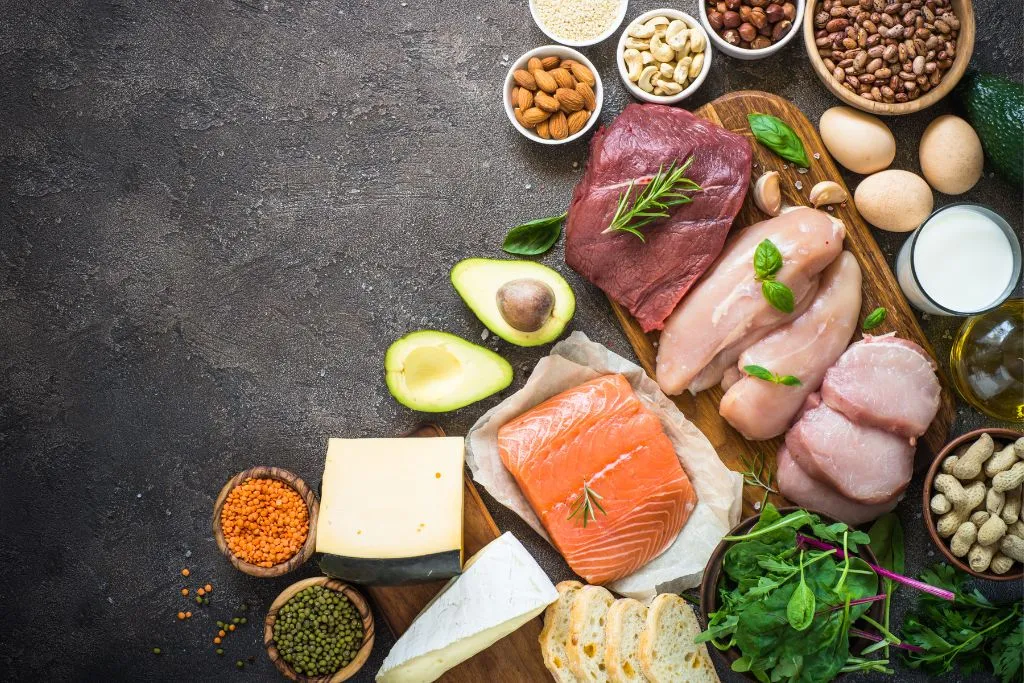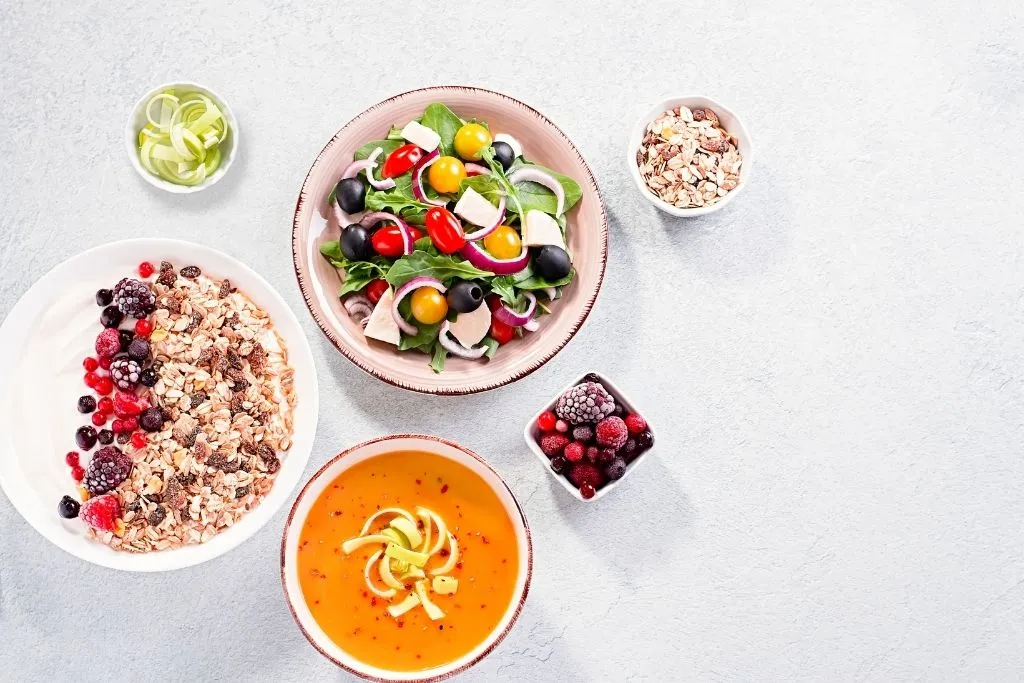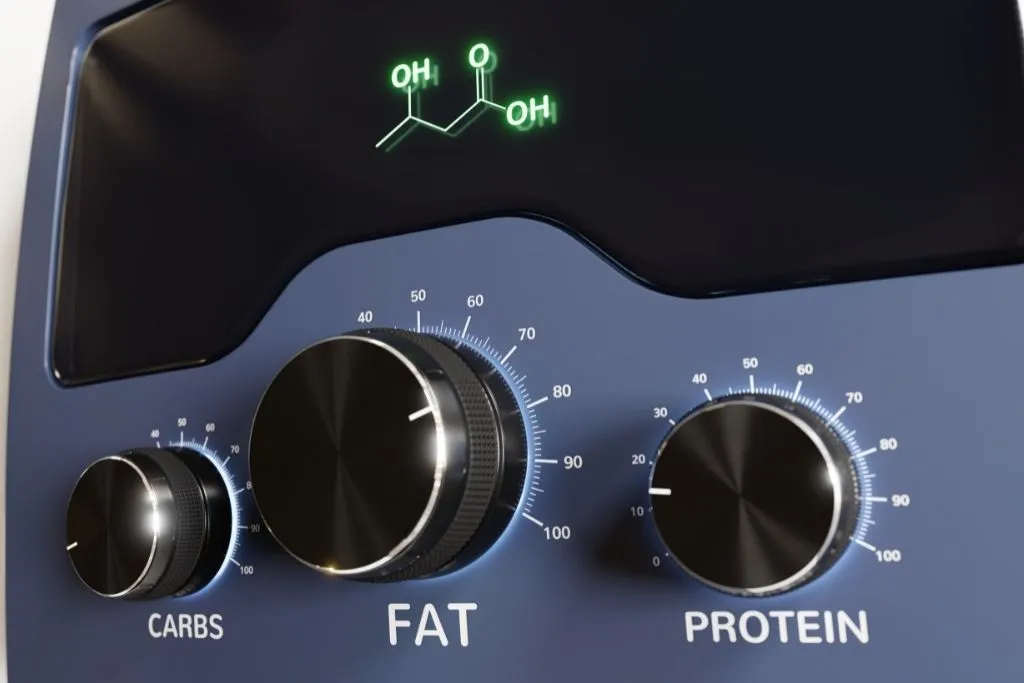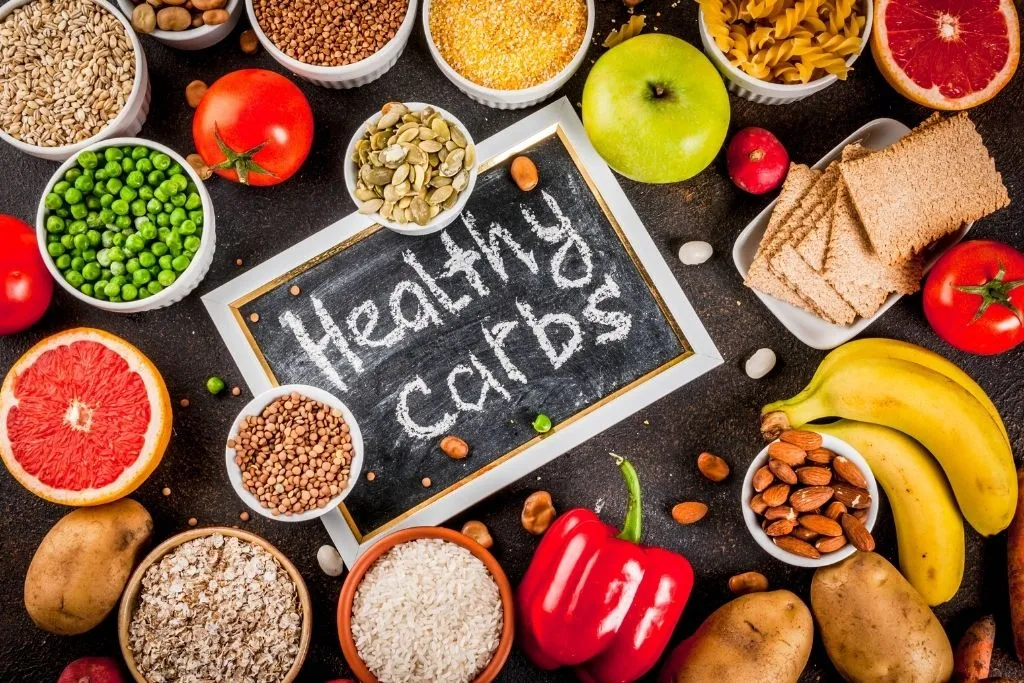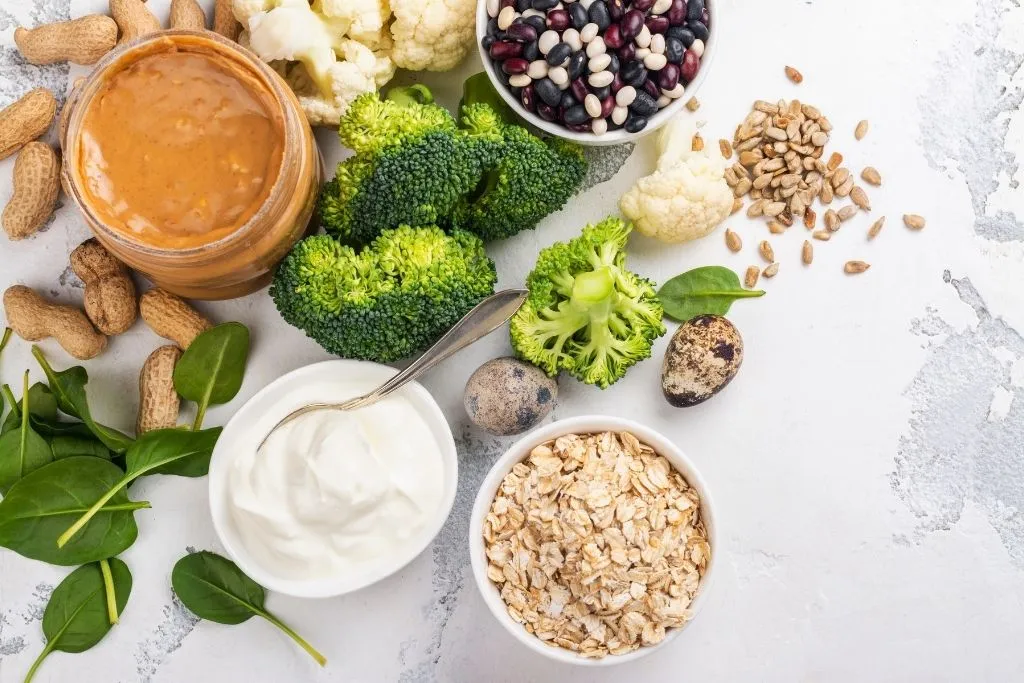Les protéines sont un macronutriment dont votre corps a besoin pour rester en bonne santé et fonctionner comme il le devrait – elles sont vitales pour la croissance et la réparation, et fournissent les éléments constitutifs des tissus de votre corps, y compris les muscles, les os et même vos cheveux !
Les acides aminés sont les composés qui forment les protéines, et bien que certains acides aminés soient produits naturellement par votre corps, d’autres ne sont disponibles qu’à partir de sources alimentaires. Un apport adéquat en protéines est crucial pour les femmes qui s’entraînent, car il aide à développer et à réparer vos muscles plus rapidement, afin que vous deveniez plus en forme et plus fort.
Il y a quelques éléments que vous devriez considérer lorsque vous choisissez des aliments riches en protéines, mais la bonne nouvelle est que vous pouvez répondre à vos besoins en protéines en mangeant une variété d’ingrédients différents, tout en développant vos muscles avec un régime à base de plantes !
De combien de protéines avez-vous besoin ?
Les besoins en protéines de chacun sont différents, selon le sexe, l’âge, le niveau d’activité et l’état de santé général. Pour les personnes de plus de 18 ans, l’apport quotidien recommandé est de 0,75 g de protéines par kg de poids corporel.
Cependant, les gens très actifs ont souvent besoin de 1,2 à 2 fois plus. Pourquoi? L’exercice endommage le tissu musculaire que votre corps répare ensuite, reconstruisant le muscle encore plus fort qu’il ne l’était auparavant.
Les protéines sont le nutriment essentiel dans ce processus, donc si vous vous entraînez régulièrement, il est important de vous assurer que vous en consommez suffisamment.
En fait, la recherche montre qu’une quantité optimale de protéines après l’exercice est d’environ 20 à 25 g. Si ce montant n’est pas réalisable immédiatement après votre entraînement, ne vous inquiétez pas ! Toute protéine que vous mangez tout au long de la journée contribuera toujours à votre apport quotidien et maintiendra le fonctionnement de votre corps à un niveau optimal.

Choisir des aliments riches en protéines
Certains aliments riches en protéines sont considérés comme de meilleure qualité que d’autres en raison du nombre d’acides aminés qu’ils contiennent. Il existe environ 20 acides aminés différents dans les protéines, et neuf d’entre eux proviennent de la nourriture.
Lorsqu’un aliment contient les neuf acides aminés essentiels (ceux que votre corps ne peut pas fabriquer), il est appelé « protéine complète ». Ces aliments proviennent généralement de sources animales et comprennent la viande maigre, la volaille, le poisson, les œufs ou les produits laitiers.
Les aliments à base de protéines végétales sont considérés comme des sources de « protéines incomplètes », donc si vous suivez un régime végétarien ou végétalien, manger une variété d’aliments vous assurera d’obtenir un bon mélange d’acides aminés essentiels pour soutenir vos objectifs de santé et de forme physique.

Des aliments riches en protéines pour tous les styles alimentaires
Inclure une large gamme d’aliments riches en protéines que vous appréciez vous aidera à atteindre votre apport en protéines recommandé, en plus de fournir une gamme d’autres micronutriments et macronutriments, notamment des glucides, des graisses, des vitamines et des minéraux, ainsi que des fibres, pour aider votre corps à fonctionner à son maximum. meilleur.
Certains aliments riches en protéines ont un pourcentage très élevé de protéines pures et d’autres contiennent un pourcentage de glucides, de lipides ou des deux. Cela peut être quelque chose à considérer si vous avez des objectifs de santé et de forme physique spécifiques. et il existe une gamme d’aliments riches en protéines que vous pouvez intégrer à votre alimentation et qui compléteront également le style d’entraînement que vous avez choisi.
Aliments riches en protéines et faibles en glucides
Voici quelques exemples d’aliments faibles en glucides et riches en protéines :
Poulet
Grillée ou cuite au four, la poitrine de poulet maigre contient 31 g de protéines par portion de 100 g. Le poulet peut être préparé de différentes manières, comme ce poulet sain aux épices du Moyen-Orient. La façon dont le poulet est cuit est importante – les aliments hautement transformés, le poulet frit ou pané peuvent avoir moins de valeur nutritionnelle que les aliments entiers.
Viandes rouges
Le bœuf contient environ 25 g de protéines pour 100 g. C’est également une excellente source de fer biodisponible et de vitamine B12, deux minéraux importants pour la santé des femmes.
Œufs
Bonne nouvelle pour les fans d’œufs : ils contiennent environ 6 g de protéines, dont tous les acides aminés essentiels. La plupart des nutriments se trouvent dans le jaune d’œuf, alors assurez-vous de l’inclure lorsque vous préparez des plats qui nécessitent des œufs, comme des crêpes protéinées !
Poissons
Le poisson peut être une source saine de protéines – le thon en conserve contient 22 g de protéines par boîte de 85 g. Les poissons gras, comme le saumon, le thon et les sardines sont riches en acides gras oméga-3 qui favorisent la santé cardiaque. Cet aliment riche en protéines peut être un choix sain pour toute personne suivant un régime pescétarien ou céto.
Aliments riches en protéines et faibles en gras
Ces aliments sont riches en protéines et faibles en gras. Ils conviennent également à toute personne suivant un régime végétarien.
Lentilles et haricots
Les lentilles contiennent environ 9 g de protéines pour 100 g. Les légumineuses comme les lentilles et les pois chiches sont faibles en gras et riches en fibres. Vous pouvez les inclure dans vos collations et repas comme Chilli Kale Toast With Hummus.
Lait et yaourt écrémés
Le yaourt grec nature allégé contient environ 10 g de protéines pour 100 g. Lorsque vous choisissez un yaourt, recherchez une option sans sucre ajouté.
Une tasse de lait écrémé contient environ 8 g de protéines et comprend d’autres nutriments importants. Cela signifie que prendre un café au lait sur le chemin du travail peut vous aider à atteindre votre objectif quotidien de protéines !
Quinoa
Cette céréale sans gluten a une teneur élevée en protéines, avec environ 8 g de protéines pour chaque tasse cuite. C’est aussi une protéine complète avec les neuf acides aminés essentiels. Dégustez-le dans ce bol de quinoa arc-en-ciel végétarien ou ajoutez des flocons de quinoa à votre smoothie au petit-déjeuner.
Aliments végétaliens riches en protéines
Pour ceux qui suivent un régime végétal ou végétalien, certains des aliments déjà mentionnés conviendront. Voici quelques autres aliments végétaux riches en protéines :
Noix et graines
De nombreuses graines de noix contiennent plus de 10 % de protéines, notamment des arachides, des amandes, des pistaches et des graines de chia. Le beurre de cacahuète et d’autres types de beurre de noix peuvent être ajoutés aux smoothies, étalés sur du pain grillé ou des craquelins ou appréciés avec des légumes crus comme des bâtonnets de céleri ou de carotte.
Tofu
Le tofu contient environ 8 g de protéines pour 100 g, dont les neuf acides aminés essentiels. Il peut être brouillé, utilisé dans des sautés ou ajouté à une salade de nouilles

Et si vous n’aviez toujours pas assez de protéines ?
De manière générale, vous devez consommer suffisamment de protéines de qualité lorsque vous suivez un régime alimentaire équilibré et nutritif. Cependant, si l’un de vos objectifs est de développer vos muscles, un complément alimentaire riche en protéines peut être une option, comme un shake protéiné quotidien.
Il existe une variété de poudres de protéines à base de produits laitiers ou de plantes qui peuvent être incorporées à votre alimentation. Ceux-ci doivent toujours être utilisés comme supplément et ne doivent jamais remplacer les aliments entiers. Pour obtenir les meilleurs conseils, parlez à votre professionnel de la santé qui pourra vous fournir des informations spécifiques à vos besoins.
Les avantages des aliments riches en protéines vont au-delà de la construction musculaire !
Les protéines jouent un rôle dans le fonctionnement du système immunitaire, la gestion de l’appétit et le maintien de la santé des os, des ongles et de la peau.
Connaître approximativement la quantité de protéines dont vous avez besoin chaque jour peut également aider à contrôler les portions. Lorsque vous savez quels sont vos besoins en protéines, vous pouvez sélectionner des aliments qui fourniront les différents nutriments dont vous avez besoin pour vous sentir mieux !
Comment obtenez-vous suffisamment de protéines chaque jour ? Faites le nous savoir dans la communauté !
L'expert nutrition pour Oktofit :


